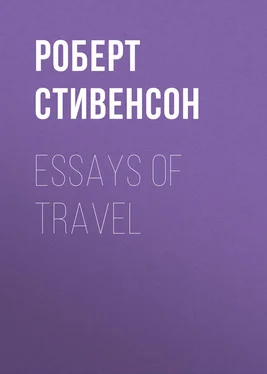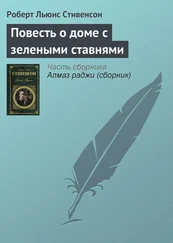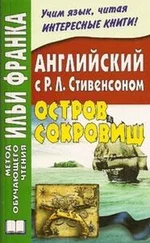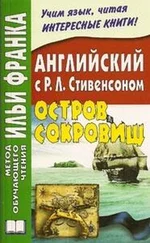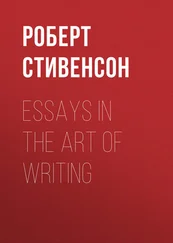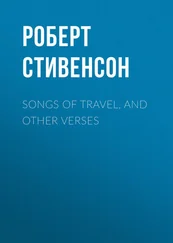Роберт Стивенсон - Essays of Travel
Здесь есть возможность читать онлайн «Роберт Стивенсон - Essays of Travel» — ознакомительный отрывок электронной книги совершенно бесплатно, а после прочтения отрывка купить полную версию. В некоторых случаях можно слушать аудио, скачать через торрент в формате fb2 и присутствует краткое содержание. Жанр: literature_19, foreign_antique, foreign_prose, Путешествия и география, на английском языке. Описание произведения, (предисловие) а так же отзывы посетителей доступны на портале библиотеки ЛибКат.
- Название:Essays of Travel
- Автор:
- Жанр:
- Год:неизвестен
- ISBN:нет данных
- Рейтинг книги:3 / 5. Голосов: 1
-
Избранное:Добавить в избранное
- Отзывы:
-
Ваша оценка:
- 60
- 1
- 2
- 3
- 4
- 5
Essays of Travel: краткое содержание, описание и аннотация
Предлагаем к чтению аннотацию, описание, краткое содержание или предисловие (зависит от того, что написал сам автор книги «Essays of Travel»). Если вы не нашли необходимую информацию о книге — напишите в комментариях, мы постараемся отыскать её.
Essays of Travel — читать онлайн ознакомительный отрывок
Ниже представлен текст книги, разбитый по страницам. Система сохранения места последней прочитанной страницы, позволяет с удобством читать онлайн бесплатно книгу «Essays of Travel», без необходимости каждый раз заново искать на чём Вы остановились. Поставьте закладку, и сможете в любой момент перейти на страницу, на которой закончили чтение.
Интервал:
Закладка:
The morning was raw and foggy, though the sun suffused the fog with pink and amber; the fog-horn still blew, stertorous and intermittent; and to add to the discomfort, the seamen were just beginning to wash down the decks. But for a sick man this was heaven compared to the steerage. I found him standing on the hot-water pipe, just forward of the saloon deck house. He was smaller than I had fancied, and plain-looking; but his face was distinguished by strange and fascinating eyes, limpid grey from a distance, but, when looked into, full of changing colours and grains of gold. His manners were mild and uncompromisingly plain; and I soon saw that, when once started, he delighted to talk. His accent and language had been formed in the most natural way, since he was born in Ireland, had lived a quarter of a century on the banks of Tyne, and was married to a Scots wife. A fisherman in the season, he had fished the east coast from Fisherrow to Whitby. When the season was over, and the great boats, which required extra hands, were once drawn up on shore till the next spring, he worked as a labourer about chemical furnaces, or along the wharves unloading vessels. In this comparatively humble way of life he had gathered a competence, and could speak of his comfortable house, his hayfield, and his garden. On this ship, where so many accomplished artisans were fleeing from starvation, he was present on a pleasure trip to visit a brother in New York.
Ere he started, he informed me, he had been warned against the steerage and the steerage fare, and recommended to bring with him a ham and tea and a spice loaf. But he laughed to scorn such counsels. ‘I’m not afraid,’ he had told his adviser; ‘I’ll get on for ten days. I’ve not been a fisherman for nothing.’ For it is no light matter, as he reminded me, to be in an open boat, perhaps waist-deep with herrings, day breaking with a scowl, and for miles on every hand lee-shores, unbroken, iron-bound, surf-beat, with only here and there an anchorage where you dare not lie, or a harbour impossible to enter with the wind that blows. The life of a North Sea fisher is one long chapter of exposure and hard work and insufficient fare; and even if he makes land at some bleak fisher port, perhaps the season is bad or his boat has been unlucky and after fifty hours’ unsleeping vigilance and toil, not a shop will give him credit for a loaf of bread. Yet the steerage of the emigrant ship had been too vile for the endurance of a man thus rudely trained. He had scarce eaten since he came on board, until the day before, when his appetite was tempted by some excellent pea-soup. We were all much of the same mind on board, and beginning with myself, had dined upon pea-soup not wisely but too well; only with him the excess had been punished, perhaps because he was weakened by former abstinence, and his first meal had resulted in a cramp. He had determined to live henceforth on biscuit; and when, two months later, he should return to England, to make the passage by saloon. The second cabin, after due inquiry, he scouted as another edition of the steerage.
He spoke apologetically of his emotion when ill. ‘Ye see, I had no call to be here,’ said he; ‘and I thought it was by with me last night. I’ve a good house at home, and plenty to nurse me, and I had no real call to leave them.’ Speaking of the attentions he had received from his shipmates generally, ‘they were all so kind,’ he said, ‘that there’s none to mention.’ And except in so far as I might share in this, he troubled me with no reference to my services.
But what affected me in the most lively manner was the wealth of this day-labourer, paying a two months’ pleasure visit to the States, and preparing to return in the saloon, and the new testimony rendered by his story, not so much to the horrors of the steerage as to the habitual comfort of the working classes. One foggy, frosty December evening, I encountered on Liberton Hill, near Edinburgh, an Irish labourer trudging homeward from the fields. Our roads lay together, and it was natural that we should fall into talk. He was covered with mud; an inoffensive, ignorant creature, who thought the Atlantic Cable was a secret contrivance of the masters the better to oppress labouring mankind; and I confess I was astonished to learn that he had nearly three hundred pounds in the bank. But this man had travelled over most of the world, and enjoyed wonderful opportunities on some American railroad, with two dollars a shift and double pay on Sunday and at night; whereas my fellow-passenger had never quitted Tyneside, and had made all that he possessed in that same accursed, down-falling England, whence skilled mechanics, engineers, millwrights, and carpenters were fleeing as from the native country of starvation.
Fitly enough, we slid off on the subject of strikes and wages and hard times. Being from the Tyne, and a man who had gained and lost in his own pocket by these fluctuations, he had much to say, and held strong opinions on the subject. He spoke sharply of the masters, and, when I led him on, of the men also. The masters had been selfish and obstructive, the men selfish, silly, and light-headed. He rehearsed to me the course of a meeting at which he had been present, and the somewhat long discourse which he had there pronounced, calling into question the wisdom and even the good faith of the Union delegates; and although he had escaped himself through flush times and starvation times with a handsomely provided purse, he had so little faith in either man or master, and so profound a terror for the unerring Nemesis of mercantile affairs, that he could think of no hope for our country outside of a sudden and complete political subversion. Down must go Lords and Church and Army; and capital, by some happy direction, must change hands from worse to better, or England stood condemned. Such principles, he said, were growing ‘like a seed.’
From this mild, soft, domestic man, these words sounded unusually ominous and grave. I had heard enough revolutionary talk among my workmen fellow-passengers; but most of it was hot and turgid, and fell discredited from the lips of unsuccessful men. This man was calm; he had attained prosperity and ease; he disapproved the policy which had been pursued by labour in the past; and yet this was his panacea, – to rend the old country from end to end, and from top to bottom, and in clamour and civil discord remodel it with the hand of violence.
THE STOWAWAYS
On the Sunday, among a party of men who were talking in our companion, Steerage No. 2 and 3, we remarked a new figure. He wore tweed clothes, well enough made if not very fresh, and a plain smoking-cap. His face was pale, with pale eyes, and spiritedly enough designed; but though not yet thirty, a sort of blackguardly degeneration had already overtaken his features. The fine nose had grown fleshy towards the point, the pale eyes were sunk in fat. His hands were strong and elegant; his experience of life evidently varied; his speech full of pith and verve; his manners forward, but perfectly presentable. The lad who helped in the second cabin told me, in answer to a question, that he did not know who he was, but thought, ‘by his way of speaking, and because he was so polite, that he was some one from the saloon.’
I was not so sure, for to me there was something equivocal in his air and bearing. He might have been, I thought, the son of some good family who had fallen early into dissipation and run from home. But, making every allowance, how admirable was his talk! I wish you could have heard him tell his own stories. They were so swingingly set forth, in such dramatic language, and illustrated here and there by such luminous bits of acting, that they could only lose in any reproduction. There were tales of the P. and O. Company, where he had been an officer; of the East Indies, where in former years he had lived lavishly; of the Royal Engineers, where he had served for a period; and of a dozen other sides of life, each introducing some vigorous thumb-nail portrait. He had the talk to himself that night, we were all so glad to listen. The best talkers usually address themselves to some particular society; there they are kings, elsewhere camp-followers, as a man may know Russian and yet be ignorant of Spanish; but this fellow had a frank, headlong power of style, and a broad, human choice of subject, that would have turned any circle in the world into a circle of hearers. He was a Homeric talker, plain, strong, and cheerful; and the things and the people of which he spoke became readily and clearly present to the minds of those who heard him. This, with a certain added colouring of rhetoric and rodomontade, must have been the style of Burns, who equally charmed the ears of duchesses and hostlers.
Читать дальшеИнтервал:
Закладка:
Похожие книги на «Essays of Travel»
Представляем Вашему вниманию похожие книги на «Essays of Travel» списком для выбора. Мы отобрали схожую по названию и смыслу литературу в надежде предоставить читателям больше вариантов отыскать новые, интересные, ещё непрочитанные произведения.
Обсуждение, отзывы о книге «Essays of Travel» и просто собственные мнения читателей. Оставьте ваши комментарии, напишите, что Вы думаете о произведении, его смысле или главных героях. Укажите что конкретно понравилось, а что нет, и почему Вы так считаете.
